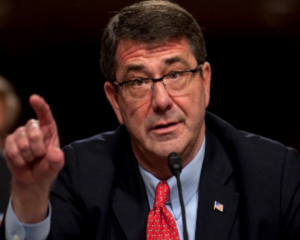Latest News
Media Availability with Secretary Carter at Camp Pendleton Marine Corps Base, California
SECRETARY OF DEFENSE ASH CARTER: Okay, well, listen. Thank you all for being here this afternoon, and I'll make a couple of comments, and then be prepared to answer your questions.
Let me start on a sad note, however. I did want to note that we lost two service members in Afghanistan in recent days. That, and they, like the brave Marines I visited today, were protecting our country, lost their lives doing that. And our prayers, and condolences and thoughts are with the families.
I've been, today, here at Pendleton, and I thought I'd just say two things about that. The first is how proud I am, and I know every American would be of the Marines I got to spend the morning with today. This is the finest fighting force the world has ever known, and what makes it the best is the people.
We have great technology, we have lots of other strengths. People around the world admire us, and like the values that we stand for. So, we have a lot of strengths as a country, but what are -- the core strength of our military is the people. And I was so proud of them, and you, too, would have been so proud of them.
The Marines, and the Marines here at Pendleton, are at the fulcrum of the strategic transition that our military is carrying out today, as we go from an era of total -- near total, and preoccupation with, and dedication to success in Iraq and Afghanistan in a counter-insurgency – in counter-insurgency campaigns, to a wider spectrum of concerns and potential conflicts, that range from counter insurgency, counter-terrorism, and so forth, right up to high-end conflict.
And the Marines here are beginning to train and deploy against that wider spectrum of threats. That's exactly what we need them to be doing from a strategic point of view. That's exactly what they are doing. And what that means for Pendleton and for the Marine Corps, is that they are, right here, right now, at the center of carrying the American military's strategic future forward. And that's another thing that makes me proud of them.
Finally, I'll be here a few hours longer, and I mentioned that our people are the center of what makes our military great. And I will -- one of the things that makes our military people great, is that they are learners. We take on issues, we address them, we resolve them.
And that's the spirit that we are bringing to, and must bring, to the effort, which can't stop until it ends, until it's concluded successfully to eradicate sexual assault in the military. And I'll be meeting with the Marine Corps unit here that works on that, which has pioneered some of the techniques and understanding to both respond to this scourge, and also to prevent it. So, that's another thing that I'll be doing today.
But on all of these fronts, you would be so proud of the Marines here at Pendleton. So, we're very grateful to the community here for hosting them.
We were honored that Congressman Issa was here to meet with them this afternoon, and we appreciate the support of the local community.
And with that, let me answer some questions.
STAFF: Lita
Q: Mr. Secretary, as you mentioned when you started out, two Americans were killed in Afghanistan, in an insider threat situation.
It appears as thought the Taliban has, indeed, taken over Musa Qala, and I'm wondering -- the second time the U.S. took on airstrikes in Afghanistan to combat threats.
Do you see this happening more? Do you see the Taliban gaining a stronger foothold there? How do you see this affecting any future troops decisions?
SEC. CARTER: Well, in this fighting season -- this was the first fighting season, and of course, it's not over yet, where the Afghan security forces have been largely been on their own.
And they have largely in most places, and in most times, done very well. This without a lot of American support. And that's a credit to the training and equipment that the United States gave them, above all to the circumstances we created in Afghanistan over the years of conflict there, and also I should say, to the National Unity government of President Ghani.
When there are special circumstances, wherein a assistance by the coalition could make a material difference, we have said since we began the transition, that we would be prepared to intervene.
So, there will be such cases. And by and large, though, I think that the performance of the Afghan security forces over the last fighting season, in their very first time basically operating without very much coalition support at all, has been impressive. And I say that as someone who remembers three, four, five years ago, when the Afghan security forces were still a gleam in the eye, rather than an actual organized fighting force.
And they are certainly that now.
Q: Can you talk about the peace talks?
SEC. CARTER: I'm sorry?
Q: Just to follow up on Lita’s question, on the troop withdrawals from Afghanistan, what's the timeframe for withdrawals after the beginning of the first of the year? I think this was -- (inaudible) -- maybe come down after that at some point.
And then there was a cease-fire agreement a new on in – between the Ukraine and the (inaudible).
Have you seen anything along the border with Russia? The withdrawal of Russia forces or -- (inaudible)? Do you believe this will be more successful this time -- (inaudible)?
SEC. CARTER: Well, with respect to the force presence in Afghanistan, no change there. The president did decide earlier this year to sustain the presence at 9,800 through this year, in order to be able to provide the most advisory and assist capability to the Afghan security forces, along with our coalition partners, that we could.
The plan, which is now two years -- made two years ago, is to draw down to a Kabul-based presence by the end of next year.
And of course, and very importantly, continue both from the United States and the coalition, to make substantial contributions to the support of the Afghan security forces. After all, it is the Afghan security forces that are going to keep the peace and keep the Taliban on the ropes in the long run.
The president has indicated that he wants to look again at the counter terrorism dimensions of that, and other dimensions. And that he would be doing that in the course of the fall, and obviously, that time hasn't come yet.
So, that's the Afghanistan piece. On the Ukraine piece, we watch everyday the level of contact along the line of contact there. I don't have anything particular to report to you, new from that. We watch that very closely; we continue to be concerned about Russian activity, which is evident there, and has been now for more than a year.
And more generally about Russian conduct with respect to Europe, which has gotten the attention to the Europeans, and why we have taken a renewed, strategic approach to Russia, which we call strong and balanced, which I spoke about in Berlin a few weeks ago. That's an important strategic development over the last year, and one that the United States and the NATO alliance need to respond to and are.
STAFF: We're going to turn over here to some of the locals -- (inaudible).
Q: Welcome to San Diego.
SEC. CARTER: Thank you.
Q: First visit to what's possibly the biggest Navy-Marine Corps town in the country. So, what's on the top of your agenda for the Navy and Marine Corps (inaudible)?
SEC. CARTER: Top of the agenda for the Navy and Marine Corps is the -- carrying their missions into the strategic future. That's where they're both focused now. Again, this follows after, really, 14 years of intense effort, and extremely impressive effort at counter-insurgency at both Iraq -- in both Iraq and Afghanistan.
But here at Pendleton, down at Twentynine Palms, out at other Marine Corps installations around the United States, during that period, the principle focus was, as it needed to be, given the missions they were assigned then on counter insurgency. Now, the country is going to be asking them, and I am asking them, to prepare for and prepared to execute a wider range of strategic missions, what is called full spectrum.
And that means changing and adapting their training, doing -- continuing to do intensive training, but across a wider range of missions. And doing different sorts of deployment.
So, some of the units here will be deploying to the Pacific, not to the Middle East, although there will be units deploying to the Middle East.
So, global presence and wide spectrum capabilities, that's the future.
Q: What's the Navy -- (inaudible)?
SEC. CARTER: Exactly the same thing for the Navy, exactly the same set of missions, and obviously, in the Marine Corps you have an overlap of the Navy and the Marine Corps, because one of the Marines specialties is operating from the sea, meaning from a ship. And those ships are operated by the Navy.
So, I had the opportunity today to be both with Marine Corps leaders and Navy leaders, which is appropriate, because they're both necessary to this strategic transition. They're both very well represented in this area of our country.
And on behalf of the rest of the country, and certainly on behalf of myself and the Department of Defense, I'm grateful to the California communities that host our forces. We don't take it for granted; we know that you know that they're here to protect you and give our children a better future, and we're glad to see that you host them so generously.
STAFF: Got time for one more. Right there.
Q: Mr. Secretary, even though the congressman mentioned that California and Congress are disconnected, is your office disconnected of California towards the new technology that the government is creating? Also, if they are going to be at the heart of private industry and technology to be used for the future of -- (inaudible) -- the new resources that the government is going to be using to fight against terrorists and also the drug cartels?
SEC. CARTER: Well, we are connected here in California and around the country with the rest of our society from which we draw our wonderful young people. We're connected with the innovative and technology community, which gives us some of our best technology and weapons systems, with commercial industry, upon whom we depend for all of our systems and a tremendous amount of assistance.
So -- and specifically here, and this is something that I'll be focusing on tomorrow, not in this part of California, but up in northern California, I'll be visiting a unit that I created, called the Defense Innovation Unit Experimental, whose very purpose is in the specific area of new technology, to connect the Department of Defense to the innovative communities of California and around the world.
I mean, around the country -- world, too, for that matter.
STAFF: Thank you, sir.
SEC. CARTER: Thank you. Good to be with you. And to the local press, thank you for your communities. Thanks for what you do for this wonderful, wonderful installation.
http://www.defense.gov/News/News-Transcripts/Transcript-View/Article/615185/media-availability-with-secretary-carter-at-camp-pendleton-marine-corps-base-ca.

Latest News
PM’s political deputy says IEA won’t hesitate to defend Afghans
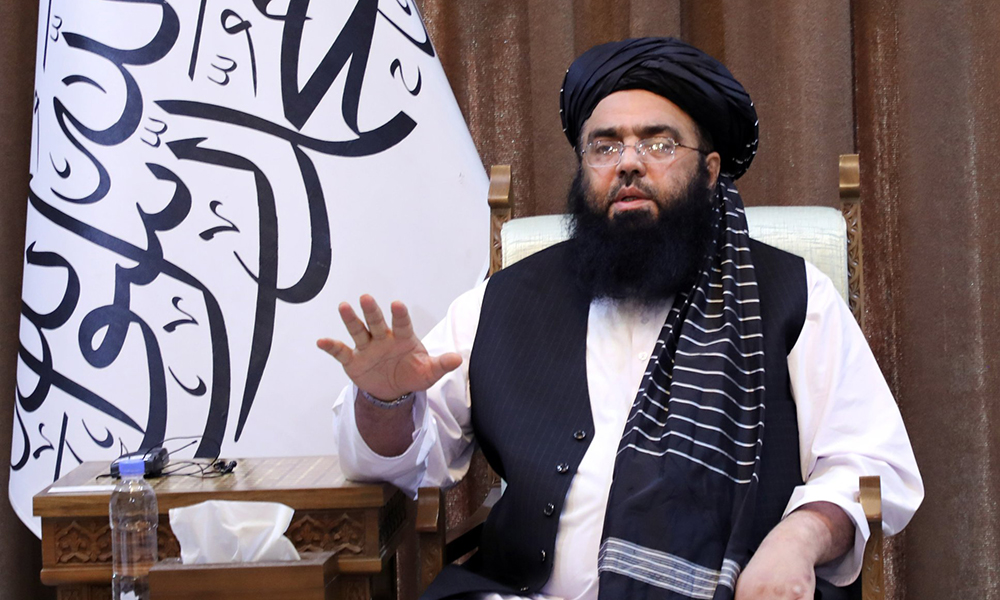
Mawlawi Abdul Kabir, the Deputy Prime Minister for Political Affairs, stated that the Islamic Emirate of Afghanistan (IEA) will not hesitate to defend the Afghan people and will reject any party's directives.
Speaking at a program at Kabul University, Kabir emphasized that the IEA does not allow any armed groups to operate on Afghanistan's soil. He also remarked that false accusations against Afghanistan serve no constructive purpose and only worsen relations, leading to increased violence.
Kabir welcomed the reopening of the Saudi Arabian embassy in Kabul, calling it a positive step in bilateral relations.
Additionally, he highlighted the IEA's efforts to enhance the education system, ensuring that students receive both modern education and religious training.
Kabir affirmed that Afghanistan's educational system is grounded in Islamic and Afghan values, free from the influence of any political factions.
Latest News
Afghanistan’s invaders have failed to learn from the past: Anas Haqqani
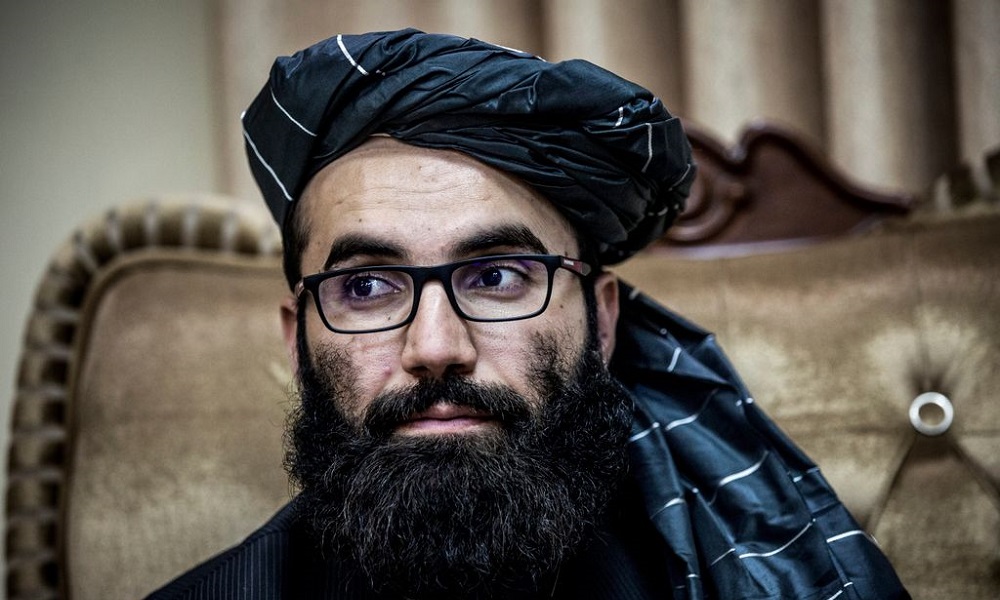
Marking the 45th anniversary of the Soviet invasion of Afghanistan, Anas Haqqani, a prominent member of the Islamic Emirate, stated that the Afghans had previously defeated "arrogant empires."
In a post on his X account on Thursday, Haqqani remarked that despite the historical defeats suffered by past invaders, none had learned from their predecessors' fate, which ultimately led to the downfall of subsequent aggressors.
He pointed out that some people still fail to grasp the clear lessons of Afghanistan's history.
Haqqani underscored that while the Afghan people celebrated the end of Soviet occupation by achieving their freedom, it came at a tremendous cost.
He concluded by honoring the sacrifices of those who paved the way for this victory, asserting that their legacy will remain etched in the collective memory of humanity for generations to come.
Latest News
Pakistan confirms airstrikes in Afghanistan
Stating that protecting its citizens was Pakistan’s top priority, Baloch reiterated that there were “threats posed by terrorist elements to Pakistan and its citizens”.
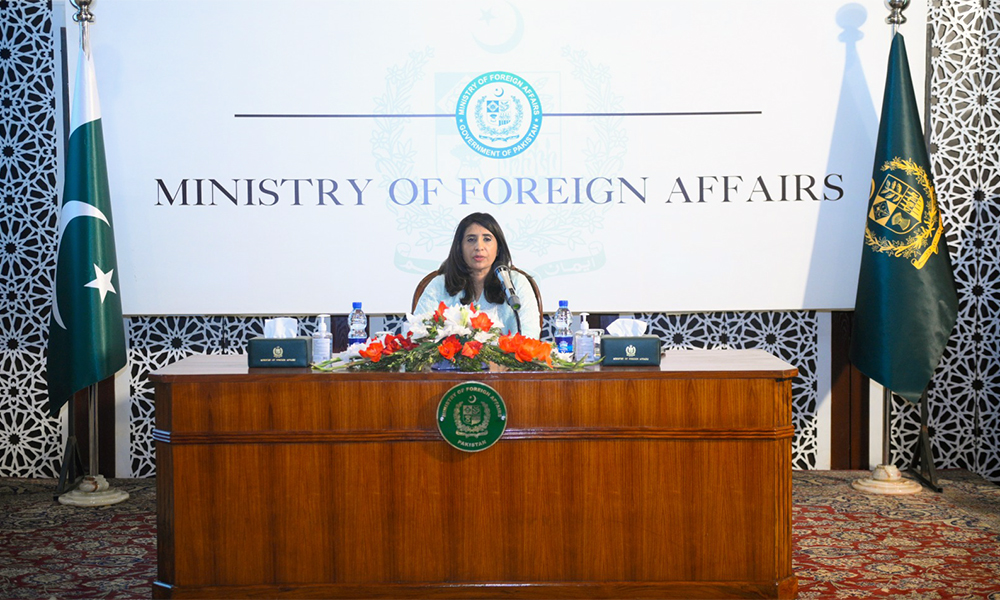
Pakistan’s foreign ministry on Thursday confirmed that the country carried out airstrikes in Afghanistan on Tuesday night.
“Pakistan is united for its people. Pakistan conducted an operation in Afghanistan’s border areas,” Foreign Ministry spokesperson Mumtaz Zahra Baloch said, Dawn newspaper reported.
“The intelligence-based operation was conducted by Pakistan in Afghanistan’s border areas,” Baloch specified, adding that it was carried out “based on threats to the security of Pakistani citizens”.
However, the official stressed that Pakistan had “always prioritised dialogue in matters relating to ties with Afghanistan”.
“We respect Afghanistan’s integrity and sovereignty,” she asserted.
Baloch noted that Pakistan’s security forces and law enforcement agencies routinely conduct operations “against terrorist groups in the border areas”. “Preparations for these operations are made in an extremely careful manner,” she highlighted.
Stating that protecting its citizens was Pakistan’s top priority, Baloch reiterated that there were “threats posed by terrorist elements to Pakistan and its citizens”.
“Pakistan is committed to the security of its public,” Baloch said.
IEA summons Pakistan’s charge d’Affaires over deadly airstrikes
The Ministry of Foreign Affairs of the Islamic Emirate of Afghanistan (IEA) on Wednesday summoned the Charge d'Affaires of the Pakistani Embassy in Kabul, the ministry said in a statement.
The ministry handed over a "firm protest note" to the Pakistani diplomat, condemning the recent airstrikes by Pakistani forces in the Barmal district of Paktika province.
The note stressed that the protection of Afghanistan's territorial integrity is a "red line" for the Islamic Emirate and warned that such reckless actions would have serious and far-reaching consequences.
The Pakistani airstrikes, which took place late Tuesday night, resulted in 46 deaths and left six others injured in Barmal district.
-

 Business4 days ago
Business4 days agoShoemaking industry in Takhar province facing stagnation
-

 Latest News4 days ago
Latest News4 days agoA new polio vaccination campaign is set to launch in Afghanistan
-

 Latest News4 days ago
Latest News4 days agoEight Afghan migrants die as boat capsizes off Greek island
-
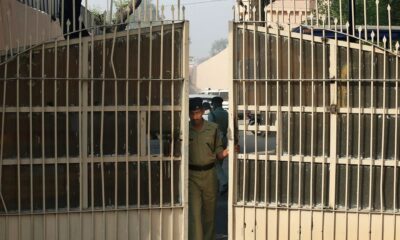
 Latest News2 days ago
Latest News2 days agoOver 50 Afghan inmates freed from Pakistani prisons
-

 World5 days ago
World5 days agoMore than 30 dead in Brazil bus and truck collision
-

 Science & Technology4 days ago
Science & Technology4 days agoAlbania bans TikTok for a year after killing of teenager
-
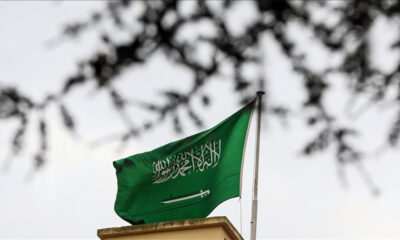
 Latest News4 days ago
Latest News4 days agoSaudi Arabia reopens embassy in Afghanistan
-

 Latest News3 days ago
Latest News3 days agoTrump criticizes abandoning of equipment in Afghanistan, vows to rebuild military

